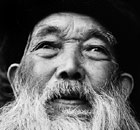-
-
China Daily E-paper
From the Readers
Dimming hopes for Hong Kong
(China Daily)
Updated: 2010-04-02 06:34
 |
Large Medium Small |
Hong Kong is one of the most prosperous, glittering and developed cities in Asia. Unfortunately, it is also notorious for its income inequality.
The vast majority of the poor in Hong Kong is poorly educated and likely unskilled migrants from the mainland. Devoid of permanent citizenship, they are deprived of public pension, unemployment benefits and subsidized public housing during their first seven years of residence in Hong Kong. They are usually frustrated and dejected in looking for a job. Their bitter struggles render their children equally destitute. This intergenerational poverty has greatly widened the wealth gap and further complicated the longstanding social rivalry in the city.
Even the survival of the jobless with permanent citizenship is also troublesome in Hong Kong. With the aid of meager public pension, they can only afford to reside in filthy cubicles and even rusty cages. Public housing is grossly inadequate. Even though these pensioners file an application for public housing, it takes at least five years to secure a relatively decent flat, usually on the outskirts of the city. Waiting for a public flat is yet another torment for the underprivileged. In Hong Kong, its housing policy has unreasonably tilted in favor of the wealthy. To buoy the property market, the Hong Kong government has been reluctant to build more public houses for the needy over the past decade. The land on Hong Kong Island and in Kowloon is usually auctioned off to make way for luxurious residential skyscrapers for property tycoons and the rich.
It's high time that the Hong Kong government got to the root of income equality and kept poverty from besmirching the hopes of Hong Kong.
Chan Wai-keung, Hong Kong via e-mail
(China Daily 04/02/2010 page9)









